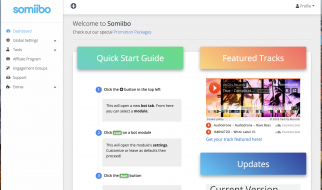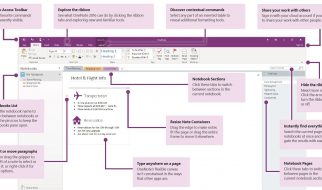
On my first day at HubSpot, my sales trainer said this: ?Congratulations, based on the number of applicants, and the number of people we hire, it?s easier to get accepted to Harvard than to walk through these doors as a new employee?.
I thought to myself: holy crap I?m awesome.
Then I thought to myself: wait, that can?t be true, Harvard is an amazing Ivy League school and this is just a tech company.
My sales trainer was not lying ? based on the numbers, getting that job was actually statistically less likely than getting an offer to attend Harvard.
I?m not tooting my own horn here, honestly, I didn?t even know what I was getting myself into. I just went through a tough hiring process, and did my best to get hired. Frankly, I didn?t even really know what HubSpot was on my first day. Our first-day icebreaker was to introduce ourselves and where we came from:
The people around me: Developer from Facebook, support at Apple, sales at Salesforce, sales manager from Google, sales at TripAdvisor.
Then me: Recruiter from Aerotek?
Almost everyone in my new hire class had come from a big-name tech company, and while Aerotek is a big company, few people had even heard of it.
I?m big into telling stories, but I?m not telling you about my first day at HubSpot for kicks. I?m trying to illustrate that snagging a software sales job is not a cakewalk.
In fact, if you don?t have software sales experience, it might seem like your job applications are going into a black hole?you might not even get any responses.
You might think: wow, I suck so bad that I don?t even warrant a NO.
Realistically, it?s probably not you that sucks, it?s the way you?re applying for software sales jobs.
Everyone knows about the perks, the pay, and casual dress code/ free beer. Getting a job in tech is not easy, every position is in demand.
That said, I?ve now worked at four software companies, and coached a bunch of my friends on how to get a software sales job, and the following is my best advice:
What are tech companies looking for?
Frankly, they?re looking for people with software sales experience. You?ll be the underdog without tech experience, but it certainly won?t stop you from getting a job. Your first barrier to entry is your physical resume, and your social resume.
First, let?s talk skills and resume/ cover letter.
If you?re coming from outside of tech, sales managers and sales recruiters are looking for transferable skills and sales numbers. They?ll be looking for keywords, so?give them what they want:
Performance against quota: If you crushed your quota selling paper, advertising, or literally anything else, put it on your resume! Sales manager like to see numbers ? proof that you know how sell.
Style of selling: Here?s a term to learn ? consultative selling. You may already know this, but most software products requires a consultative seller. You?re ability to listen and ask the right questions to prospects becomes absolutely necessary in software sales. You?ll want to list your collaborative selling skills on your resume.
Smarts: Smart people put together a nice resume and cover letter. No typos, and your resume should be really organized. Software is complex by nature, and actually selling a software product is even more complex ? if you?ve sold a complex product in the past, let recruiters know!
Soft skills: Software sales teams are looking for teachable hustlers that are constantly self improving. That?s a mouthful but it?s all true, software sales is extremely lucrative, but requires a very specific personality type. If you are that type (ambitions self improving hustler with high emotional intelligence) your cover letter needs to reflect that.
Oh, and one more thing. Software sales managers/ recruiters are looking for ?your why?. If you haven?t read ?Start with Why? from Simon Sinek, now might be a good time to do that. Somewhere along the line you?ll get asked ?why the leap to software sales? or ?why do you want to work at x software company?. Your cover letter is a great spot for your ?why?. Hint: even if you just want more money, think of another ?why?.
Your social resume
A killer resume and cover letter is great, but at this point your social resume is huge differentiator. Why? Because it shows that you?re engaging with the world around you, and that you actually know something about technology. Here are a few ideas:
Linkedin: Get a nice picture up there, tailor your job description to highlight the hard and soft skills we talked about earlier, and if you?re a salesperson, get 500+ connections and some endorsements.
Other social networks: First off (and obviously), the Facebook and Instagram pictures slamming beer need to go (or need to be set to private). Second, remember the emotionally intelligent hustler driven by constant self improvement? Software companies like to see social profiles that reflect those skills. Software is constantly changing, and your ability to problem solve in a dynamic environment is huge. Your social profiles should reflect an intuitive curious person with broad interests.
Entrepreneurs: The irony is that most entrepreneurs don?t want to work for someone else, but software companies love people that think outside the box. If you?ve made any forays into the entrepreneurial world, you might want to leverage that experience. For example: I sold paint jobs door-to-door in college and managed a team of up to 9 painters. That experience had nothing to do with software, but sales managers loved to hear about it.
Where to look
Now that your resume and cover letter are beautifully polished, let?s talk about getting some interviews.
The first step is knowing where to look, and the second step is going the extra mile. Here are a few places to find jobs:
Linkedin ? Okay, Linkedin is a great place to find jobs, but ?easy apply? is not going to get you anywhere. If you see a software sales job at a good company, apply on their company website. I got jobs at HubSpot and SurveyMonkey by applying directly on their website, not on Linkedin.
AngelList ? You might not have heard about this one, but I?ve landed two jobs on this site (including my current employer). If you want to work at a company with under 50 employees, this is the place to look. You need to create a killer profile, and always write a note with your application. Make sure to leverage those transferable skills in the note.
TheLions ? I?ve never actually gotten a job on this site, but I really like the recruiters at TheLions. I?ve had numerous interactions, and they work with some great companies.
Now for step number two: going the extra mile. This is where your ?social resume? comes in. With every job application, I always find the company on Linkedin and add either the sales recruiter from the post or the person that posted the job on AngelList. When I add them, I always add a personalized message.
I?ve even reached out to people on Twitter, saying something like ?Hey, cool blog post last week, I just applied for your business development job, would love to talk more!?
Bare in mind that you are applying for a sales job, and getting the right person on the phone will be your job. Why not show hiring manager that you already know how to do that before you even interview?
The Interview
Now that you?ve tenaciously gotten the attention of some software companies, the interview process begins. Buckle up because the process usually takes some time, and you?re going to step out of your comfort zone.
Biggest tip: do research. Here?s the first question I got at HubSpot, SurveyMonkey, Process Street, and just about every other tech company that I?ve interviewed at: what is our product? Sounds simple but if you didn?t research the company and use cases, your first interview is going to be about 5 minutes and you?ll end up with a rejection email in your inbox.
Once you snag an interview, here?s what the process usually looks like, and here are a few tips on how to nail each step:
15 minute call with recruiter: This is where your research comes in. The recruiter will likely ask about your background, and your understand of their product. If you don?t have software sales experience, the recruiter will be looking for transferable skills. You?ll want to highlight consultative selling skills and how you collect BANT (Budget, Authority, Need, Timeline).
Hour long call or meeting with hiring manager: Hiring managers are usually looking for a culture fit, and they?ll look to test your sales acumen. They might ask questions around why you like sales, how you would go about selling their product, or they might ask about a deal and how you closed it. They?ll look for you to be articulate, and they?ll want to know how you?ve performed against quota.
Hour long sales project: Some companies might require a ?sales project?. This is where you?ll be given a scenario and you?ll be asked to sell the software solution back to the sales manager or sales recruiter. The company is not going to expect you to know everything about the product, but they will focus around your qualification skills. Software solutions will often require sales reps to ?qualify out? prospects, and the sales project requires you to showcase your qualification skills, and your closing skills. Sounds a bit stressful?and it is?just do your research and ask good questions,
Hour long meeting with director, VP, or CEO: To nail this meeting you need to ask really good questions?To be clear, you should be asking good questions throughout the process. It?s not uncommon for the final interview consist of one question from the C-level person: ?what questions do you have for me??. Here are some ideas:
-What specific traits do your most successful salespeople have?
-What is your vision for the sales organization over the next 12 months?
-Why is this job open?
-What are realistic performance expectations for my first 30?60?90 days?
-What?s your endgame? Do you want to see this company sold or do you want to IPO?
-Any plans to get another round of funding?
-Why do you work here?
-Who?s the best salesperson on your team and why?
-What?s the best sales philosophy at this company? (i.e challenger sale etc.)
-Are you satisfied with product market fit? Or does the product need to be changed before the sales team can be really successful?
And lastly, here?s a question to ask at every stage of the interview process: What do you think of me as a candidate? Do you have any hesitations? It?s not a ?hard close? but you?ll know if you?re getting moved forward or not.
Conclusion
To sum this whole thing up, in order to get a job in software sales you should:
- Have transferable sales skills
- Be an emotionally intelligent hustler driven by constant self improvement
- Clean up and polish your social media
- Be a boss at asking good questions
Really, if you can exhibit the above traits, there isn?t much standing in your way, outside of?well?actually being good at sales.
Remember, software salespeople get paid the big bucks for a reason. The actual job is really hard and required good business acumen.
That said, remember that you are interviewing for a sales job ? treat the interview process like a sales process. Treat the hiring managers like prospects. Your application would be analogous to a prospecting email?how else would you get the attention of a prospect?
When a prospect sets up a call with a sales rep, the prospect is evaluating the software, and the rep is evaluating the prospect. The same thing can be said for the interview process. The company is evaluating you as a candidate, and you should be asking them great questions to evaluate them too.
Now that you know how to stand out, where to look, and what to expect in the interview process, get out there and start applying!


